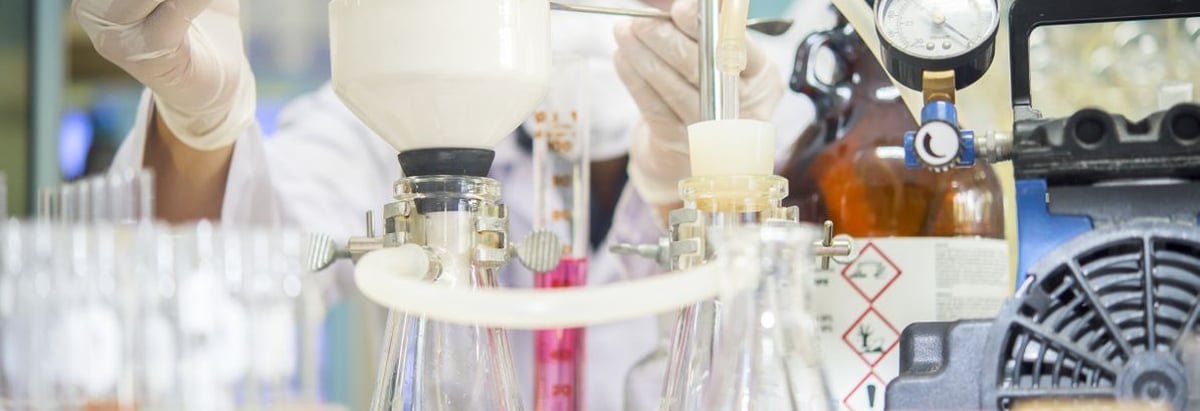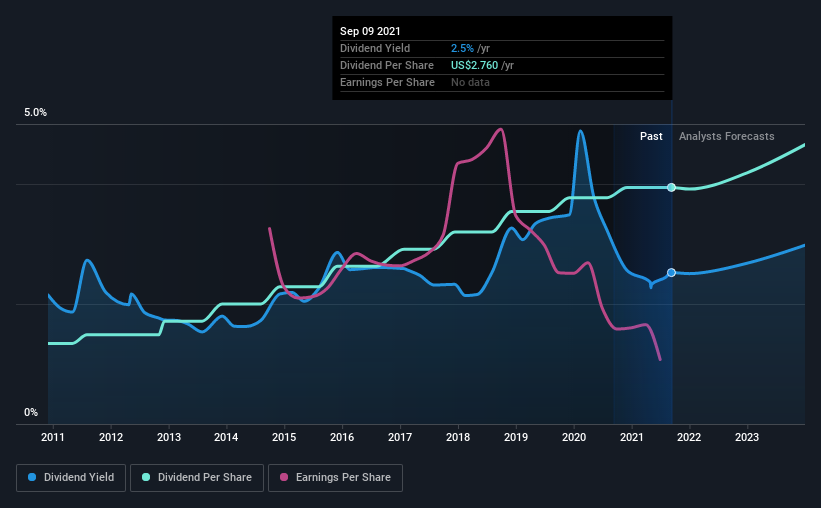- United States
- /
- Chemicals
- /
- NYSE:EMN
Don't Buy Eastman Chemical Company (NYSE:EMN) For Its Next Dividend Without Doing These Checks

Some investors rely on dividends for growing their wealth, and if you're one of those dividend sleuths, you might be intrigued to know that Eastman Chemical Company (NYSE:EMN) is about to go ex-dividend in just 3 days. The ex-dividend date is one business day before the record date, which is the cut-off date for shareholders to be present on the company's books to be eligible for a dividend payment. The ex-dividend date is an important date to be aware of as any purchase of the stock made on or after this date might mean a late settlement that doesn't show on the record date. Therefore, if you purchase Eastman Chemical's shares on or after the 14th of September, you won't be eligible to receive the dividend, when it is paid on the 1st of October.
The company's next dividend payment will be US$0.69 per share, and in the last 12 months, the company paid a total of US$2.76 per share. Based on the last year's worth of payments, Eastman Chemical stock has a trailing yield of around 2.5% on the current share price of $109.37. Dividends are an important source of income to many shareholders, but the health of the business is crucial to maintaining those dividends. So we need to investigate whether Eastman Chemical can afford its dividend, and if the dividend could grow.
View our latest analysis for Eastman Chemical
If a company pays out more in dividends than it earned, then the dividend might become unsustainable - hardly an ideal situation. Eastman Chemical paid out 115% of profit in the past year, which we think is typically not sustainable unless there are mitigating characteristics such as unusually strong cash flow or a large cash balance. That said, even highly profitable companies sometimes might not generate enough cash to pay the dividend, which is why we should always check if the dividend is covered by cash flow. Thankfully its dividend payments took up just 33% of the free cash flow it generated, which is a comfortable payout ratio.
It's good to see that while Eastman Chemical's dividends were not covered by profits, at least they are affordable from a cash perspective. If executives were to continue paying more in dividends than the company reported in profits, we'd view this as a warning sign. Very few companies are able to sustainably pay dividends larger than their reported earnings.
Click here to see the company's payout ratio, plus analyst estimates of its future dividends.

Have Earnings And Dividends Been Growing?
Businesses with shrinking earnings are tricky from a dividend perspective. Investors love dividends, so if earnings fall and the dividend is reduced, expect a stock to be sold off heavily at the same time. With that in mind, we're discomforted by Eastman Chemical's 16% per annum decline in earnings in the past five years. When earnings per share fall, the maximum amount of dividends that can be paid also falls.
Another key way to measure a company's dividend prospects is by measuring its historical rate of dividend growth. Eastman Chemical has delivered 11% dividend growth per year on average over the past 10 years. That's intriguing, but the combination of growing dividends despite declining earnings can typically only be achieved by paying out a larger percentage of profits. Eastman Chemical is already paying out 115% of its profits, and with shrinking earnings we think it's unlikely that this dividend will grow quickly in the future.
Final Takeaway
Is Eastman Chemical worth buying for its dividend? It's never great to see earnings per share declining, especially when a company is paying out 115% of its profit as dividends, which we feel is uncomfortably high. However, the cash payout ratio was much lower - good news from a dividend perspective - which makes us wonder why there is such a mis-match between income and cashflow. It's not the most attractive proposition from a dividend perspective, and we'd probably give this one a miss for now.
Having said that, if you're looking at this stock without much concern for the dividend, you should still be familiar of the risks involved with Eastman Chemical. Every company has risks, and we've spotted 5 warning signs for Eastman Chemical you should know about.
We wouldn't recommend just buying the first dividend stock you see, though. Here's a list of interesting dividend stocks with a greater than 2% yield and an upcoming dividend.
When trading Eastman Chemical or any other investment, use the platform considered by many to be the Professional's Gateway to the Worlds Market, Interactive Brokers. You get the lowest-cost* trading on stocks, options, futures, forex, bonds and funds worldwide from a single integrated account. Promoted
Valuation is complex, but we're here to simplify it.
Discover if Eastman Chemical might be undervalued or overvalued with our detailed analysis, featuring fair value estimates, potential risks, dividends, insider trades, and its financial condition.
Access Free AnalysisThis article by Simply Wall St is general in nature. We provide commentary based on historical data and analyst forecasts only using an unbiased methodology and our articles are not intended to be financial advice. It does not constitute a recommendation to buy or sell any stock, and does not take account of your objectives, or your financial situation. We aim to bring you long-term focused analysis driven by fundamental data. Note that our analysis may not factor in the latest price-sensitive company announcements or qualitative material. Simply Wall St has no position in any stocks mentioned.
*Interactive Brokers Rated Lowest Cost Broker by StockBrokers.com Annual Online Review 2020
Have feedback on this article? Concerned about the content? Get in touch with us directly. Alternatively, email editorial-team (at) simplywallst.com.
About NYSE:EMN
Eastman Chemical
Operates as a specialty materials company in the United States, China, and internationally.
Very undervalued established dividend payer.
Similar Companies
Market Insights
Community Narratives



